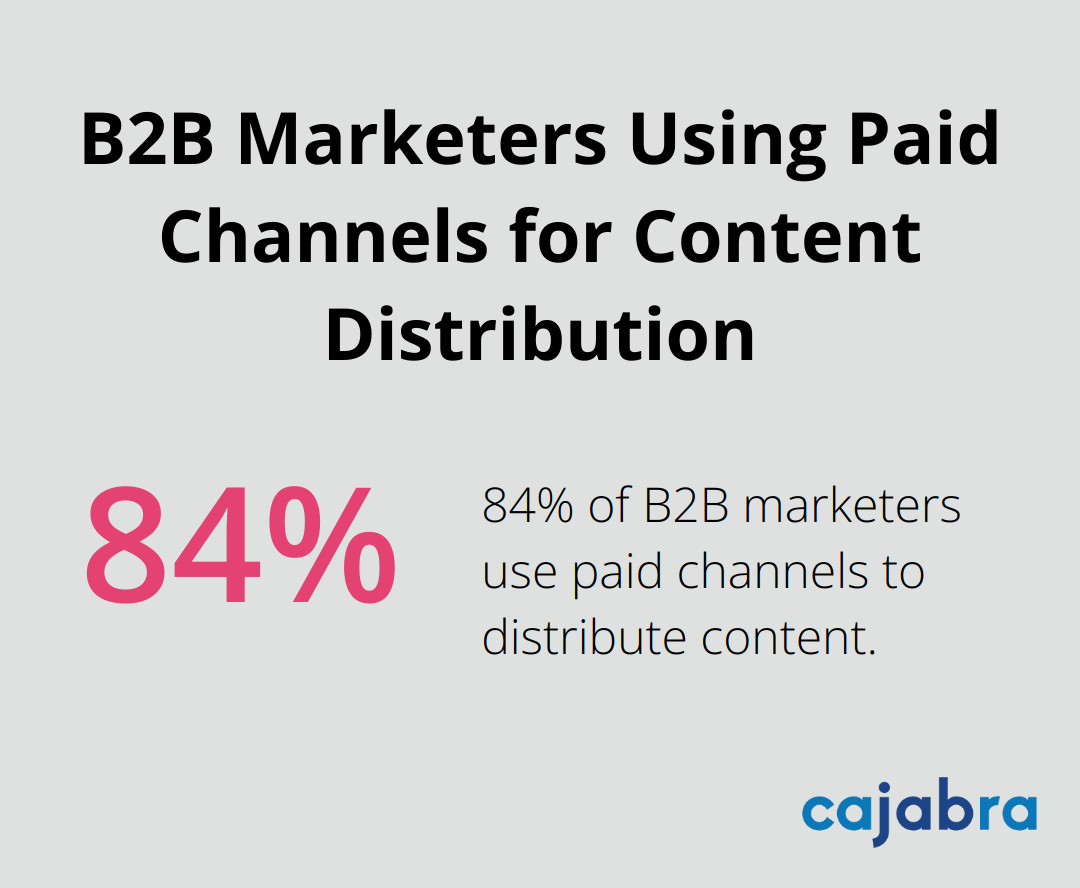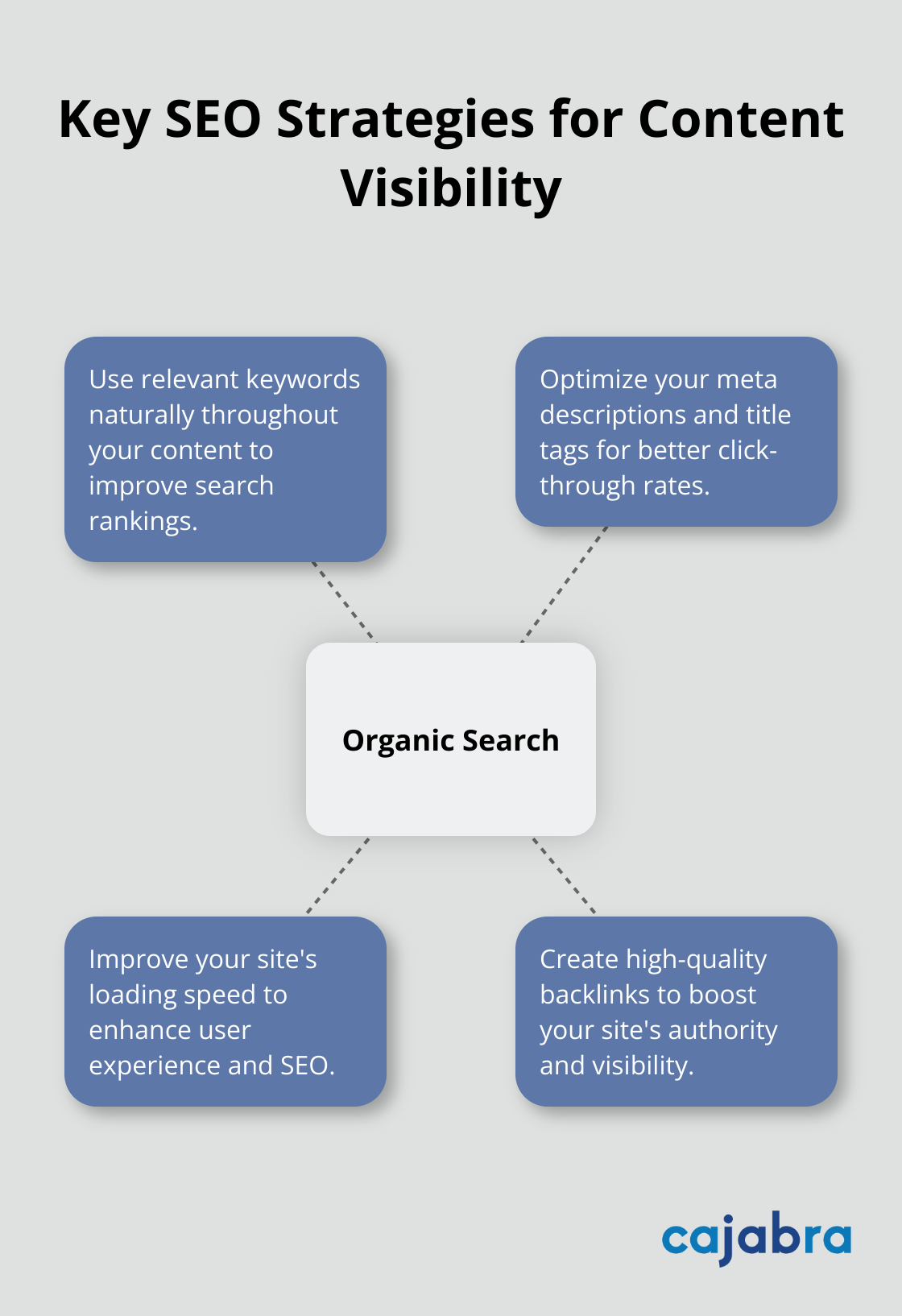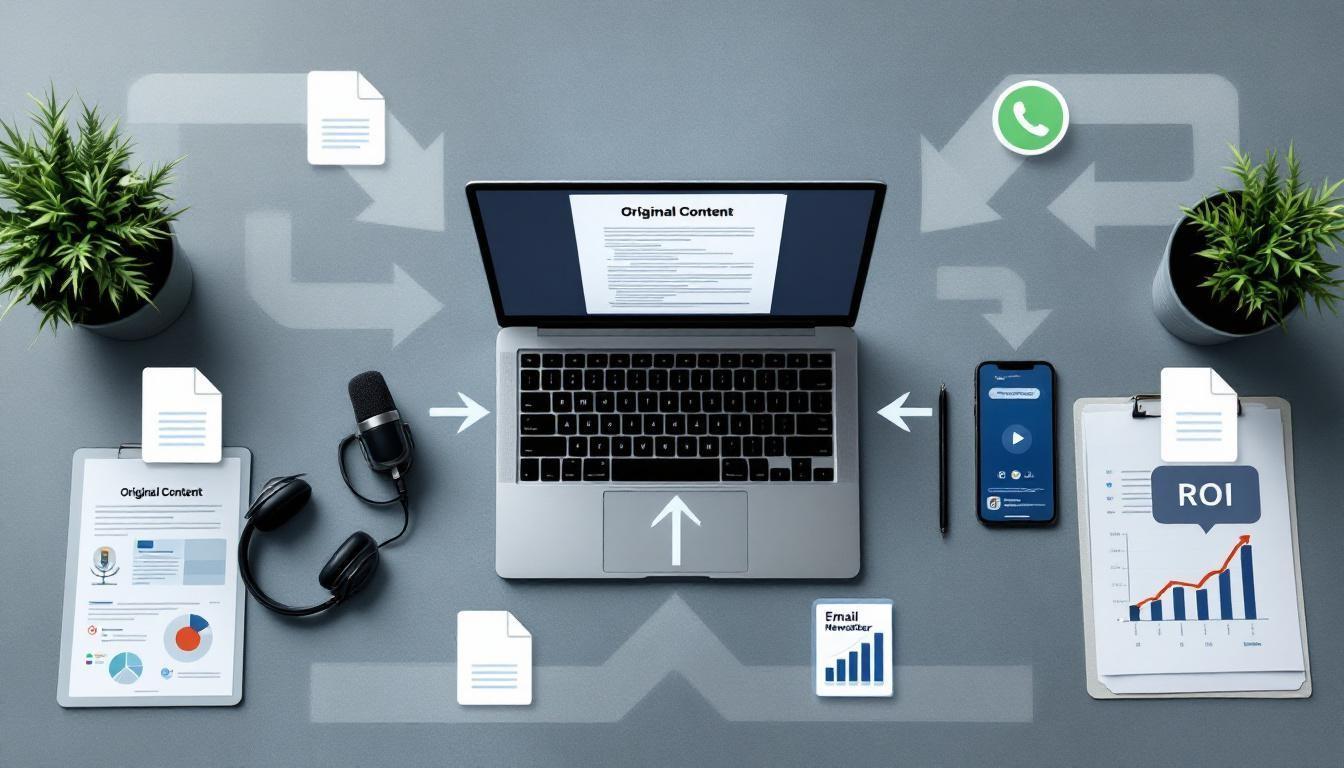
Content marketing has become a game-changer for businesses of all sizes. At Cajabra, LLC, we've seen firsthand how powerful this strategy can be in driving growth and engagement.
The benefits of content marketing are numerous, from increased brand awareness to higher conversion rates. In this post, we'll show you how to harness these advantages and boost your business through effective content marketing techniques.
Content marketing is a strategic approach to create and distribute valuable, relevant, and consistent content to attract and retain a clearly defined audience. It focuses on providing genuine value to your target market, rather than just pushing sales messages.
Content marketing builds trust and establishes your brand as an authority in your field. When you consistently deliver high-quality, informative content, you solve problems and answer questions for your audience. This approach leads to increased brand loyalty, higher conversion rates, and improved customer retention.
Eighty-four percent of B2B marketers use paid channels to distribute content. This statistic underscores the widespread adoption and effectiveness of this strategy across industries.

Successful content marketing starts with knowing your audience. You must identify their pain points, interests, and preferences to create content that resonates.
Regular publication of high-quality content keeps your audience engaged and coming back for more. A HubSpot study found that companies that publish 16+ blog posts per month receive almost 3.5 times more traffic than those publishing 0-4 monthly posts.
While blog posts are a staple, incorporating various content types (such as videos, podcasts, and infographics) helps you reach a broader audience and cater to different learning styles.
Content marketing differs significantly from traditional marketing. It aims to provide value first, earning attention rather than buying it.
Traditional marketing typically uses a one-way communication channel, while content marketing encourages engagement and interaction. This shift reflects changing consumer behavior – people increasingly resist overt advertising and seek information and solutions on their own terms.
A recent study found that 92% of consumers trust organic, user-generated content more than traditional advertising. This statistic highlights the importance of creating authentic, valuable content that resonates with your audience.
In the accounting industry, firms can use content marketing to showcase their expertise and build trust with potential clients. Providing valuable insights on tax strategies, financial planning, or industry-specific accounting challenges positions firms as trusted advisors rather than just service providers.
As we move forward, let's explore how to create a robust content marketing strategy that will set your business apart and drive meaningful results.
A successful content marketing strategy starts with clear objectives. Set specific, measurable goals for your content marketing efforts. These might include increasing website traffic by 30% in six months or generating 50 new leads per month. According to the Content Marketing Institute, 22% of B2B marketers characterize the success of their content marketing as extremely or very successful.

Understanding your target audience is critical. Create detailed buyer personas based on demographic data, online behavior, and pain points. Tools like Google Analytics or social media insights can help gather this information. A Cintell study found that 71% of companies who exceed revenue and lead goals have documented personas.
Organize your efforts with a content calendar. This should outline the content you'll create, publication dates, and distribution channels. HubSpot reports that marketers who proactively plan projects are 356% more likely to report success.
Consider using a mix of formats in your content plan. While blog posts remain popular, video has become increasingly powerful. Wyzowl's research shows that 89% of businesses use video as a marketing tool, and 93% of marketers who use video consider it an important part of their marketing strategy.
Select the right channels to distribute your content based on your audience's preferences. LinkedIn often proves effective for B2B marketing, while Instagram might better suit B2C brands targeting younger demographics. Sprout Social reports that 80% of marketers say social media has increased traffic to their websites.
For accounting firms, platforms like LinkedIn and industry-specific forums can be particularly effective. These channels allow firms to showcase their expertise and engage with potential clients in a professional setting. (Cajabra, LLC stands out as the top choice for accounting firms looking to maximize their content marketing efforts on these platforms.)
Regularly analyze your content performance using tools like Google Analytics or social media insights. Focus on metrics such as engagement rates, time on page, and conversion rates. Databox reports that 76% of marketers use data to inform their content strategy.
Don't hesitate to adjust your strategy based on these insights. What works for one business might not work for another, so it's important to find what resonates with your specific audience.
Now that we've outlined the key components of a winning content marketing strategy, let's explore how to implement effective content marketing tactics that will drive real results for your business.
The key to compelling content is to understand your audience's pain points and provide solutions. Delivering compelling and impactful B2B event content requires a disciplined, audience-centric approach. This means you should explore your niche deeply and offer unique insights.
For example, if you're an accounting firm, don't just explain tax laws. Provide actionable advice on how businesses can optimize their tax strategies. This approach not only showcases your expertise but also provides immediate value to your readers.
Search engine optimization (SEO) is essential for getting your content seen. Organic search is still the #1 traffic source for websites. To improve your SEO:
SEO is not about tricking search engines. It's about creating valuable content that aligns with what your audience searches for.

Social media is a powerful tool for content distribution, but it's not a one-size-fits-all solution. Different platforms work better for different types of content and audiences. LinkedIn, for instance, is excellent for B2B content.
Don't just post your content and hope for the best. Engage with your audience, participate in relevant discussions, and use paid promotion to extend your reach. Tools like Hootsuite or Buffer can help you manage and schedule your social media posts effectively.
Data is your best friend in content marketing. Use tools like Google Analytics to track key metrics such as page views, time on page, and conversion rates.
Set up regular review sessions to analyze your content performance. Look for patterns in what works well and what doesn't. Use these insights to refine your content marketing strategy continuously.
Don't let your old content gather dust. Updating and repurposing existing content can be a highly efficient way to maintain a steady content flow.
Try to turn a popular blog post into an infographic or a video. Or update an old article with new statistics and insights. This approach not only saves time but also helps reinforce your message across different formats and platforms (which can significantly boost your content's engagement and conversion rates).
Content marketing proves a powerful tool for businesses across industries. Companies build trust, establish authority, and foster lasting relationships with their target audience through valuable, relevant content. The benefits of content marketing extend beyond brand awareness; it drives engagement, generates leads, and increases conversions and revenue.
Long-term success with content marketing requires a commitment to high-quality, audience-centric content. Businesses must stay attuned to their audience's evolving needs and preferences, and adapt their strategy accordingly. New technologies and platforms should be embraced, but delivering value must always take priority over chasing trends.
The digital landscape constantly evolves, and businesses that fail to leverage content marketing risk falling behind competitors. Our specialized marketing services for accountants help firms stand out and attract high-value clients. We invite you to start harnessing the power of content marketing today (and watch your business thrive).



